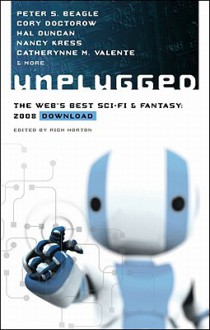
Reveka is a 13 year old girl who after being raised since she was very young in a convent has recently been reunited with her soldier father, who is the kings gardener to the Prince of Sylvania. Now they live at the castle Sylvian and she is an herbalists apprentice.
When she is summoned to the Princess consort to explain why her 12 stepdaughters all ended up smelling like cabbage after their bath,she confesses that she sprinkled some herbs in there hoping to break the princesses curse.
Even if she thinks its a silly curse
And it was a silly curse, wasn’t it? Every morning, the princesses left their tower bedroom, exhausted, with their shoes in tatters..
...and every night the twelve princesses Maricara Nadia ,Tereza,Ruxandra,Rada Lacrimora,Viorica, and Otilia go to bed and in the morning their slippers are worn right through but they wont reveal where they have been or what they have been doing to ruin their shoes.
To further complicate matters Sylvania is a small kingdom and surrounded by other more powerful neighbours and some of them have started believe that the curse the princesses are under is nothing more than a political ploy.
Especially as everyone who has tried to find out what the princesses were doing in their chambers has fallen into a deep sleep and the emissaries from the neighbouring kingdom who were sent to try and break the curse has vanished into thin air.
The Prince ,Vasile has declared that anyone who can break the curse will be richly rewarded and Reveka badly wants the money so she can set up her own herbarium.
This is as must be apparent a retelling of "The Twelve Dancing Princesses" yet none of them are the heroine of the book. Its Reveka,the 13 year old herbalists apprentice and she was great main character to follow. She had plenty of wits but was not entirely perfect,and she struggles with her newfound relationship with her father Konstantin.
They are developing something of a connection but I am not sure I liked how Revekas father Konstantin told her how he couldnt even remember her mothers face.
I was expecting this to be a bit childish but to my pleasant surprise it showed great depth not only when it came to characters but also when it came to the plot as things are far from black and white and...
in a way I felt the princesses themselves were as much a threat as any beast or invading army! They are not the only ones affected by the curse and yet they remain so secretive and refuse to do the one thing that will free their sisters,wake the sleepers and keep Sylvania from being torn apart by war.
Its also very interesting how the author has put the story in an actual historical time (even if Sylviana as a country is entirely made up) as opposed to most fairytales tend to take place in once-upon-a-time land.
Revekas father for example used to be a soldier for Vlad Tepes and one of the rulers who are just waiting for their chance to invade is Matthias Corvinus.
The book also touches on a sensitive subject,altough it doesnt explore it in detail. There is nothing explicit just mentioning it.
Namely that of girls marrying very young,so I was very glad that the issue with marriage was brought up and one concern put to rest when Reveka is fretting about it and told by Dragos that he believes while many girls marry early there is no consummation until years later..
But Princess consort Daciana was also married when very young and I am not sure the Prince Vasile was so chivalrous or decent :/
This is the first time I have heard of the zmeu and even before he appears its in the story it in the tapestry of the maiden about to be abducted by a fearsome zmeu
The bit where Reveka remarks on how the girls in the stories never get the hint and then she herself didnt catch on to the clues about Lord Dragos.Yeah that was a bit funny.
In the stories, you always know who the zmeu is; the storytellers always say he’s charming and friendly and looks like an ordinary man, but they also drop hints so broad that you can’t help but think the girl is stupid for not knowing.
I caught a flash of red and black in the shadows near the Little Well. It was Frumos—the strange man from the woods. He was less handsome than I remembered, and he was younger than I remembered, too. “The herbalist’s apprentice,” Frumos said slowly. “Remind me of your name?” I tried not to mind that he’d forgotten me, even though I remembered every detail of him, from the ugly tusks on his cloak clasp to the way his eyes smiled more than his mouth. I said, “If you can’t remember my name, then I won’t remind you.”
.
It has the right fairytale quality to the writing there is even a handsome (but Reveka thinks he is simpleminded) cowherder by the name of Mihas who goes around with his mouth hanging open
When the setting changed to the underworld I felt the story lost a bit of its pacing when it started involving less of the folklorical elements and instead crossed over to the greek pantheon mainly because I felt the Persephone story has been done so many times before and didnt feel as fresh and inventive as the rest of the book. But still towards the end of the book it picked up some of what it had before.
The book is labeled as a middle grade book but I think its also a good read for adults and I get the feeling that this is one of those books that you can read when young but appreciate the darker and more complex bits when you re-read it as an adult.
The story but left me wishing there was a sequel. In fact there must be a sequel because otherwise how will the author account for all the sequel baits in this book.
Get to writing ;)
 Super slow. Only for the last 30% or so I rated it 3 stars. Not because it was boring, but it was mostly about the art of blacksmith, and honestly I am not interested in it and my vocabulary in that field is poor. Most of the book was about that and Sand and Perrotte eating and mending and knowing each other. Overall it is a nice retelling (of "Sleeping Beauty"; if I am not wrong, I think the original Beauty was named Perrotte? plus the thorns surrounding the castle).
Super slow. Only for the last 30% or so I rated it 3 stars. Not because it was boring, but it was mostly about the art of blacksmith, and honestly I am not interested in it and my vocabulary in that field is poor. Most of the book was about that and Sand and Perrotte eating and mending and knowing each other. Overall it is a nice retelling (of "Sleeping Beauty"; if I am not wrong, I think the original Beauty was named Perrotte? plus the thorns surrounding the castle).

 Log in with Facebook
Log in with Facebook 








